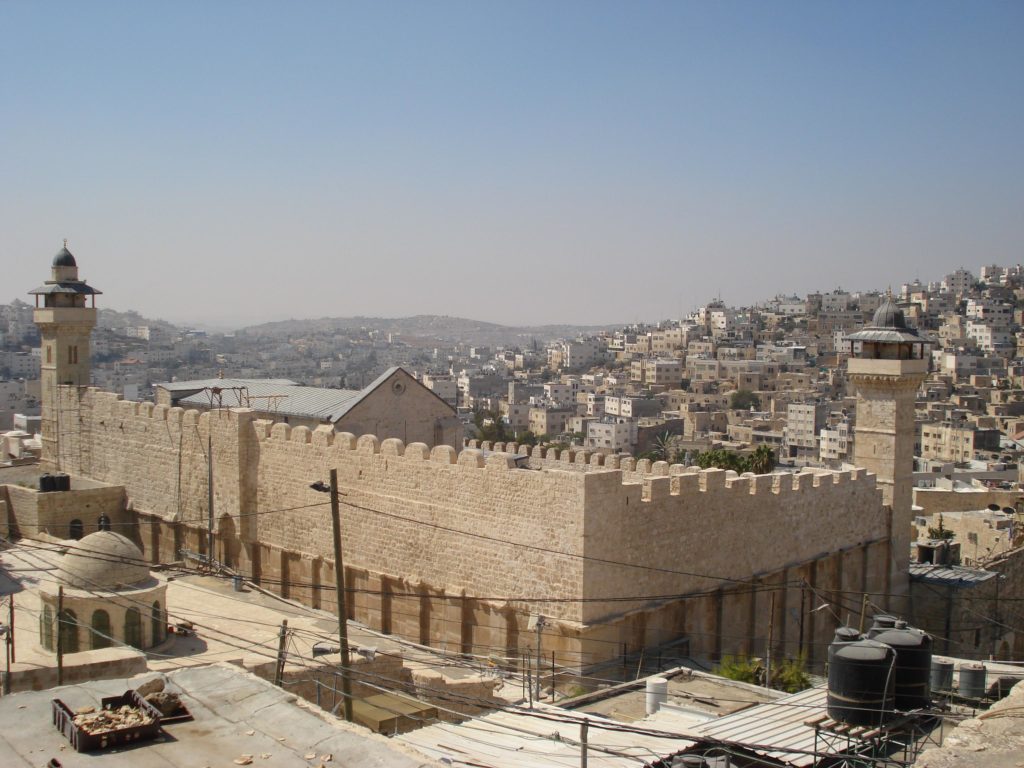UPDATES
Ethnic cleansing in Palestine
September 15, 2011 | Daniel Meyerowitz-Katz

According to a report by Oren Dorell in USA Today, the Palestinian emissary to the US has told a press conference that no Jews would be permitted to live in the planned Palestinian state.
“After the experience of the last 44 years of military occupation and all the conflict and friction, I think it would be in the best interest of the two people to be separated,” Maen Areikat, the PLO ambassador, said during a meeting with reporters sponsored by The Christian Science Monitor.
The territory to which Areikat refers would include places like the ancient city of Hebron. As Jeffrey Goldberg notes, Hebron is not just any city, but is the second holiest site in the Jewish faith, where Abraham, Sarah, Isaac, Rebecca, Jacob and Leah – the biblical patriarchs of the Jewish people – are purported to be buried. Jews have lived continuously in Hebron for millenia, aside from two brief periods where they were expelled, first by Arab pogroms in 1929 and again by Jordan in 1948.
The second-holiest city in Judaism, Hebron, is located in what would be a future state of Palestine. I find the current Jewish settlers in Hebron to be egregious people, but Jews have a natural and moral right to pray and live in their second-holiest city. No one would demand that Medina, Islam’s second-holiest city, be made free of Muslims. How could a representative of the PLO possibly think that Jews would agree to the ethnic cleansing of Hebron? This is not about continuing the occupation. The Jews who would theoretically live in Hebron under the framework of a theoretical peace deal should be offered Palestinian citizenship, and would have to live under Palestinian law, and be protected by Palestinian authorities. But the idea that Israel would agree to a settlement in which Jews were denied their religious rights in Hebron is ludicrous.
Michael Rubin notes the incredible double standard, given that this Palestinian regime that overtly advocates to clear land on racial grounds is going to be recognised as legitimate by many supposedly “tolerant” countries, whereas Israel’s demand for recognition as the homeland of the Jewish people is strongly criticised.
Turkey and perhaps European countries as well are maybe on the verge of recognizing the first state since Nazi Germany to propose a judenrein policy. There are several ironies: First, Israel, whose Arab Christian and Muslim minorities-perhaps 20 percent of the population-have full rights, but is lambasted by the cocktail set as racist. Second, when the Netanyahu government proposed recognition of Israel as a Jewish state, many diplomats-including those in the State Department-balked. But to propose a Jew-free state? That’s okay.
While Areikat uses the doctrine that the two peoples need to “be separated” in order to justify excluding any Jews from living in a future Palestinian state, the same ideology would also justify efforts by Israel to exclude its own Arab minority – an idea that is rightly condemned as unthinkable and racist by almost everyone both in Israel and elsewhere.
The stark contrast between the attitudes of the Israeli and Palestinian leaderships is further illustrated by the news yesterday that the Israeli High Court has ruled that an Arab-Israeli couple must be allowed to live in a private community in Northern Israel, despite having been rejected by the community’s admissions committee. Israel is a state where the courts enforce racial equality laws, Palestine is an aspiring state whose leaders are planning to expel its entire Jewish population. There should be little wonder that their efforts to achieve real statehood, as a opposed to a hollow victory at the UN, seem to be going nowhere.
Daniel Meyerowitz-Katz
Tags: Anti-Zionism





